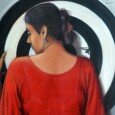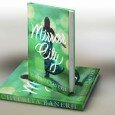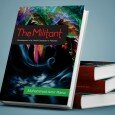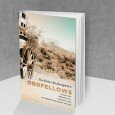By Rabia Ahmed –
A prescient novel about the evolving Pakistani Society by Zulfiqar Ghose
After taking over in a military coup, Ayub Khan was elected president, Pakistan and India fought a war and the turmoil led to Yahya Khan taking over in another military coup. In an unsettling atmosphere the 1960s, injustice and corruption started to thrive in Pakistan.
The destruction of a common man in the gradually decaying milieu of ‘60s is movingly illustrated in ‘The Murder of Aziz Khan,’ first published in London in 1967.
The book was eerily prescient and holds true for Pakistan today. And it is perhaps the reason that the novel was re-printed in Pakistan in 2013 by Oxford University Press. It gives an insight into the evil and vice that germinated at the inception of the country.
Aziz Khan, a small landowner, is the father of two sons and three daughters. A dignified man, eminently content with life; his seventy acres of land ‘did not appear to him as a property with a market value. It was a sufficiency of existence, so that nobody could take the land away from him without first taking away his existence.’ Which is exactly what the Shah brothers tried to do.
Forerunners of today’s powerful land mafias, backed by greed, lack of scruples, an excess of money, and contacts, the Shah brothers hated the Khan’s peaceful spirit. They tried to break it, and make Khan pay for his pride.
‘I wonder why he’s so damn proud?’ (said one of the Shah brothers?)
That one question encapsulates the breaking down of an entire nation’s spirit.
Authors writing in a language not native to their characters often face the challenge of how to make their characters speak the language as if its their own.
Using Shazaf Fatima Haider’s book ‘How it Happened’ (Penguin Books India, 2012) to illustrate this point, the feisty Dadi’ in the novel speaks with a liberal sprinkling of phrases such as: ‘Date-shate,’ ‘Shaadi-waadi’. But then a real life Dadi in similar circumstances could, and very probably would, speak English and might well use such turns of phrase.
The characters in Zulfiqar Ghose’s book, most of them uneducated villagers, also speak English, although they would only speak Punjabi, certainly not English in real life; but of course, this is an English book.
But here’s the difference: Haider has an affectionate dig at Dadi’s language which is Dadi’s own. Ghose’s characters, speaking as the author made them speak, are sneered at for their language by the author throughout the book.
That is probably the biggest flaw in the book. Having said that, its message– a powerful warning against corruption and indiscriminate industrialisation– is intact and crucial. It is no mean feat of imagination to predict the natural progression of a social tendency: an ill, from seed to maturity, and portray the havoc it creates so poignantly, which is what Ghose has done.
It is something that authors such as Thomas Hardy and John Steinbeck have written of, that completeness within a human being which is debased by modernism and greed, and that is where Ghose in his foreword to this edition places the literary antecedents of this book.
Definitely, it contains the same earthiness and simplicity that has to do with a passion for the land: Sitting in his yard in the evening, Aziz Khan feels a ‘slow voluptuous relaxation creep into his body.’ This passion when corrupted reeks of steel and concrete:‘The sun that late summer afternoon seemed to be steel, the air of concrete.’
Ghose’s own antecedents are somewhat uprooted. Born in Sialkot, he lived a very short few years in what is now Pakistan, then India, and the major part of his life in England (he is an alumnus of Keele University), and then the USA. He now lives in Austin, Texas with his Brazilian wife, a painter.
Ghose is the author of many books of fiction, criticism, and poetry, but this ‘The Murder of Aziz Khan’ is the only one set in Pakistan. One has to admire Ghose’s vision. His characters are the forerunners of others to come such as the village ‘hakeem’, who prescribes quinine and aspirin for every malady: two tablets every three hours for twenty four hours, never mind what.
One of the Shah brothers, prior to partition, was in the habit of going into Hindu temples to place fruit at the feet of the idols, a time bomb embedded in the water melon, a forerunner of the militants and extremists with which also, this country is riddled today, in addition to the village ‘hakims’ and the unscrupulous rich. It is hard to tell which of these is more destructive.
The writer is a journalist based in Lahore. She tweets @RabiaAhmed4 and blogs at rabia-ahmed.blogspot.com































































































